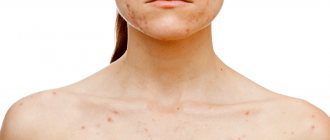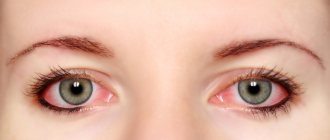What are allergies to the labia?
An allergy on the labia is a rash that is associated with inflammatory diseases of the reproductive system.
It is provoked by allergens that have a negative effect on the reproductive organs. Once in the body, allergens can provoke the rapid development of a negative reaction, or it can proceed latently. The symptoms of the disease are varied, but the main sign of the disease is rashes located on the genitals. They are characterized by itching, redness and burning. Treatment will be effective if the allergist identifies the cause of negative reactions and selects adequate drug therapy.
Nature of itching
By its nature, itching is a physiological sensation caused by irritation of the nervous system. This is why the itchy area is so tempting to scratch. It follows that itching can be caused by an external influence on one or another part of the skin, or it can be the cause of a hidden disease of a systemic nature.
Discomfort in the intimate area is associated with completely different problems in the body. This, of course, may be a banal allergic reaction, but also one of the manifestations of a severe dermatovenerological disease or disease of internal organs.
Causes of allergies in women
Genital allergies in women can occur for a number of reasons. The most common ones include:
- negative reaction to male sperm;
- for some types of contraceptives;
- on the latex from which condoms are made;
- for some groups of drugs. These include antibiotics;
- for underwear made of synthetic materials;
- if a woman has been diagnosed with candidiasis or mycosis;
- for some personal hygiene items, which include intimate area care products, tampons or pads;
- when using tampons for more than 3 hours;
- if personal hygiene is not observed;
- when using soap while washing;
- overheating;
- for injuries during sexual intercourse;
- with regular stress and nervous fatigue;
- with hypothermia;
- irritation may occur after epilation or using someone else's razor;
- with inflammation of the genital organs;
- for sexually transmitted diseases;
- if a woman has pubic lice;
- with vaginal dysbiosis;
- if diseases of the endocrine system are diagnosed;
- for diseases of the genitourinary system;
- for oncological diseases.
Any allergic rash should be a reason to consult a doctor.
Causes of allergies in children
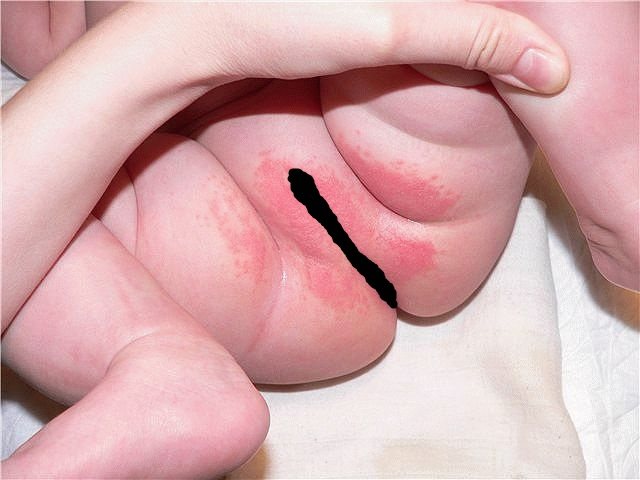
Allergy to the labia of a child is often diagnosed. The reasons for its appearance are as follows:
- the presence of fungal infections;
- failure to maintain personal hygiene;
- infection with candidiasis from the mother;
- frequent use of certain groups of medications;
- presence of infections in the body
- worms;
- disturbances in the gastrointestinal tract;
- tendency to allergies at the genetic level;
- Allergies in infants can develop due to improper introduction of complementary foods;
- due to prolonged use of diapers.
Allergies to the genitals in a child weaken or completely disappear after effective drug therapy. Relapses may recur if personal hygiene rules are not followed.
Parents who have sick children are not recommended to self-medicate.
Allergy to intimate areas
Quite often, the cause of itchy rashes in intimate places is an allergic reaction to certain irritants.
Allergy is the body’s reaction to contact with an allergen, expressed in the inflammatory process. The allergy is not infectious in nature.
Women are susceptible to such body reactions more often than men, and female allergic reactions to intimate areas have a name - allergic vaginitis. Vaginitis can be both allergic and infectious, and sometimes both.
The disease occurs when the genitals come into direct contact with a substance that causes an allergy. In this case, upon first contact, no reaction occurs, but antibodies are already beginning to accumulate in the body.
Repeated interaction, as a rule, already causes itching and burning sensations, as well as redness of the affected area.
Symptoms
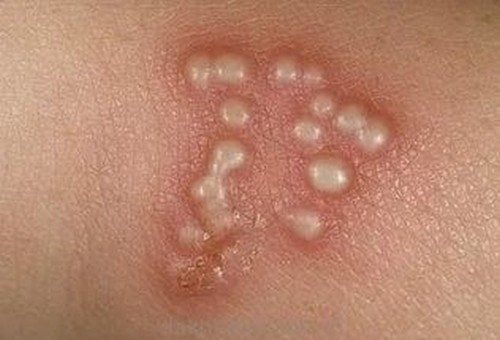
A negative reaction may be accompanied by the following symptoms:
- the labia become red and swollen;
- they itch;
- there is a strong burning sensation;
- a rash appears, which, as the disease progresses, appears as watery blisters.
Genital allergies are divided into several types.
- Dermatitis - it appears in children due to the constant use of diapers. The disease is diagnosed in children from 5 months to a year. Using diapers disrupts air circulation and prevents oxygen from reaching the skin. Children experience itching and redness. Complications of dermatitis in the form of candidiasis are possible. The disease is often diagnosed in newborn girls. If you do not start timely treatment, there is a high probability of epidermal necrosis or Lyell's syndrome. A rash in the form of small blisters quickly spreads on the organs, and then the upper layer of the epidermis peels off. You can see what the manifestation of this disease looks like in the photo.
- Contact urethritis - with this type of disease, negative reactions disappear on their own if you stop contacting the allergen. The disease is caused by taking certain groups of medications.
- Vulvovaginitis is a common type of allergy in the intimate area in women. Its occurrence is provoked by contraceptives.
- Erytherma fixed - the disease appears when taking certain medications regularly. Red spots with clearly defined boundaries are observed in the labia area. They do not cause burning or pain.
Allergy symptoms
The severity of the allergic reaction depends on the duration of skin contact with the allergen.
As the disease worsens, the following symptoms appear:
- irritation begins: the skin turns red and swells;
- there is a burning sensation and itching;
- small pimples appear that become injured over time;
- the skin is covered with a crust of ichor.
They are accompanied by pain and discomfort. It becomes difficult for a woman to move. Her emotional state changes - irritability and increased anxiety appear.
Note! What the symptoms of an allergy to sanitary and panty liners look like can be seen in the photo on the global network.
When diagnosing this condition, it is important to differentiate it from infectious and fungal diseases: vulvovaginitis, contact dermatitis and urethritis.
Vulvovaginitis
Characterized by inflammation of the mucous membranes of the vulva and vagina. It can occur due to insufficient genital hygiene. As a result, a large number of pathogenic bacteria accumulate on their surface, which provoke inflammation.
Women with this disease complain of symptoms such as:
- copious discharge from the genital tract;
- itching, burning;
- unpleasant odor;
- difficulty urinating;
- pain during sexual intercourse.
Vulvovaginitis is a consequence of decreased local immunity.
Urethritis
Or inflammation of the urethra. It is also caused by pathogenic bacteria. Clinical signs of the disease may be masked by manifestations of inflammation of other organs of the intimate zone and its surface, for example, candidiasis, cystitis, vulvovaginitis.
However, the patient’s history almost always contains the following symptoms when urinating:
- itching, burning;
- pain;
- at the end, a few drops of purulent exudate with a sharp unpleasant odor are released.
In especially severe cases, there is a false urge to urinate and a change in the direction of the urine stream.
Irritative dermatitis
Or acute inflammation of the skin surface due to irritation.
Initially, it manifests itself as redness and itching of the skin in places of contact with the allergen, and then these symptoms worsen:
- rashes appear on the skin in the form of pimples, which, due to friction with underwear, burst and turn into ulcers;
- eczema occurs in places where wounds accumulate.
In contrast to allergic dermatitis, the irritative course of the disease is characterized by a non-immunological inflammatory reaction of the skin to contact with a chemical, physical or biological factor.
Treatment

Only the doctor decides how to treat the disease. You need to know what allergic rashes on the genital mucosa look like and what the signs of the disease are in order to visit a specialist in a timely manner. After diagnosis, the doctor prescribes comprehensive treatment.
For the treatment of newborn girls, it is recommended to use drops of Fenistil and Eneterosgel, which will remove toxic substances from the body.
Women are prescribed antihistamines: Zodak, Suprastin, Cetrin. It is recommended to use ointments: Afloderm, Screen-Cap.
The problem can be avoided if you follow preventive measures. The disease is easy to prevent if you follow the recommendations:
- maintain personal hygiene daily;
- strengthen the body to increase immunity;
- avoid contact with allergens;
- do not bring the disease to a chronic state.
Conclusion
Doctors warn! Shocking statistics - it has been established that more than 74% of skin diseases are a sign of parasite infection (Accarida, Giardia, Toxocara). Worms cause enormous harm to the body, and the first to suffer is our immune system, which should protect the body from various diseases. The head of the Institute of Parasitology shared the secret of how to quickly get rid of them and cleanse your skin, it turns out that’s enough. Read more .
If women are prone to allergies, it is recommended that they regularly visit an allergist and take a course of antihistamines. This will prevent the onset of the disease and avoid complications in the future.
Treatment of itching in the intimate area in women
Up to this point, we discussed the causes of itching in the intimate area, of which there are countless. Accordingly, the problem must be dealt with based on the cause.
It is best to entrust the treatment of itching in the intimate area to a doctor to a doctor. The gynecologist will conduct the necessary tests and find out which reagent causes the unbearable desire to itch. As a rule, it is enough to take a smear to determine the degree of purity.
If it turns out that the itching is caused by a banal allergy to underwear or shower gel, it will be enough for the woman to change them and forget about the problem.
Drug treatment
When the source of the problem is clearly not synthetic underwear or intimate hygiene gel, then the woman may need drug treatment for itching. Depending on its cause, these can be various antibacterial drugs in the form of suppositories or tablets in the vagina.
If itching in a woman’s intimate area is caused by dysbacteriosis and its derivatives, the doctor will prescribe a diet, probiotics and prebiotics, as well as antifungal or antibacterial drugs.
Tablets for thrush are divided into imidazoles (active ingredients clotrimazole, miconazole, isoconazole and others), polyenes (nystatin, natamycin, etc.) and triazoles (fluconazole, itraconazole).
When the cause of itching is an STD, both partners will have to be treated, otherwise the itching will continue to haunt you after every sexual intercourse. If you are diagnosed with chlamydia, the doctor will prescribe antibiotics that act on chlamydia, trichomoniasis - local treatment against trichomonas, mycoplasmosis - antifungal drugs, syphilis - antibiotics effective against treponema pallidum and drugs based on bismuth and iodine, gonorrhea - again antibacterial solutions and a course antibiotics.
When itching is a consequence of age-related changes, the doctor can choose a hormonal cream for external use for the woman.
Causes and solutions
Itching in the intimate area in pregnant women
During this period, a woman’s body is exposed to infections several times more, it becomes more susceptible. The causes may be allergic dermatitis (the use of panty liners with fragrances, the use of gels, soaps with various pronounced additives, poor-quality underwear), which is treated with special antiallergic drugs.
- The presence of infections and diseases of the genitourinary tract also lead to this type of discomfort; Ampicillin and Nitroxoline are recommended.
- For herpes, the gynecologist prescribes antiviral tablets and ointments. Also, only a doctor must determine the course of treatment and prescribe medications for chlamydia and bacterial vaginosis.
For candidiasis, antifungal drugs are prescribed that will not harm the course of pregnancy and the baby.
Improper hygiene
The most common cause of discomfort in the intimate area. You need to start following acceptable hygiene rules to deal with the problem. A woman should wash herself twice a day; if this is not possible, use wet wipes for intimate places. As soap, you need to use special products designed for intimate hygiene that do not cause allergies and do not disturb the natural microflora of the mucous membrane.
Itching before menstruation
This kind of symptom may be a warning about inflammation of the bladder and kidneys. During menstruation, the immune system becomes weaker, and blood discharge is a suitable environment for the proliferation of various microorganisms that the body cannot cope with, which is why unpleasant sensations arise.
Itching during menstruation
You need to pay attention to the nature of the itching. If it is not only in intimate places, but also spreads throughout the body. You urgently need to get tested, as this may indicate the presence of diabetes mellitus and liver problems. Common factors can also influence this: the synthetics you wear, tight and impractical underwear, panty liners, intimate hygiene products. If the itching is accompanied by a burning sensation, then most likely it is erosion. When bloating occurs during menstruation, this indicates intestinal diseases.
Nervous itching
Such symptoms appear when there are disorders of the autonomic system. Treatment with psychotherapy is recommended. You need to protect yourself from nervous situations, stress, take sedatives and tranquilizers. Provide yourself with good sleep. Give the opportunity to relax and receive positive emotions.
Allergic reactions in intimate areas do not always occur to soap or shower gel. Often the cause of allergies is the fabric from which underwear is made. It is imperative to buy underwear for every day only from natural fabrics.
Important! It is once again emphasized that it is important for women to use special means to wash their intimate places. Hand soap or body gel are not suitable: they destroy the vaginal mucosa, weakening the protective functions.

Taking medications
Various medications often have side effects such as itching between the legs. You need to read the instructions, make sure that such a side effect is possible and replace the medicine with a more suitable drug.
During antibiotic therapy, the microflora of the intestines and vagina is disrupted. After completing the course, restoration of the flora is necessary. To do this, use complex treatment of lacto- and bifidobacteria (Linex, Yogurt), which are drunk for an average of 2 weeks, and suppositories for topical use (Meratin Combi, Acylact, Livarol, Clotrimazole).
Scented pads
Oddly enough, but using pads every day or during menstrual periods can cause the described condition. The impact of artificial dyes on delicate intimate skin is always stressful. In such a situation, you need to replace hygiene supplies.
Pubic lice
A skin condition that is not very common but does occur occasionally. For this reason, you can forget about treating itching at home. Mandatory hospitalization and treatment are required only under the supervision of specialists.
Rarely changing pads and tampons
You need to change pads or tampons every two hours. It would be ideal if you could wash yourself extra before changing the product.
Problems with hormones
Throughout life, a woman’s hormonal status constantly changes. It does not go away without a trace and affects the condition of the skin and hair, mood, as well as intimate areas. Often women experience a burning sensation in the genital area during pregnancy, after childbirth or before menstruation. Ways to solve the problem need to be sought together with gynecologists.
A disease that is extremely common and contagious. Thrush should be treated with medications; douching with soda, chamomile and sage baths for intimate areas will also help.
Causes of problems in the intimate area in women
When an allergy occurs to the mucous membrane in the intimate area, the following factors precede it.
- Long-term use of potent medications.
- Nervous overstrain.
- Stressful situations. With them, immunity decreases and the risk of allergies increases.
- Using intimate lubricant.
- Contraception. Often, an allergy to condoms provokes itching in the genital area.
- The use of personal hygiene products containing allergen components.
Symptoms and signs
Clinical manifestations can develop rapidly or be asymptomatic. In any situation, it is important to identify the irritant; this will make it possible to effectively cure the disease and prevent further recurrence of the problem.
Allergies in the intimate area in women, symptoms:
- swelling, redness on the labia;
- scratching, burning;
- peeling of the skin;
- rashes accompanied by the appearance of watery blisters.
Inappropriate manifestations in women on the genital organs are sometimes similar to genital diseases. Therapy is prescribed only after diagnosis. Itching from allergies in the genital area increases the risk of secondary infection.
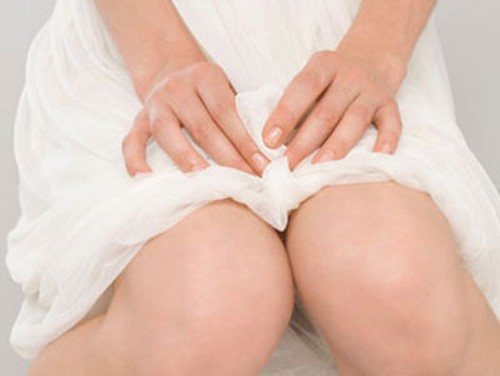
Examination methods
The doctor is able to identify the further treatment regimen; first he conducts a conversation with the woman and a gynecological examination.
Methods for diagnosing pathology.
- The doctor must rule out sexually transmitted diseases. For this purpose, a visit to a venereologist is prescribed, collecting bacterial cultures from the mucous membrane of the vagina, urethra and cervical canal.
- Blood tests for allergies and identification of possible allergens.
- Skin biopsy to look for cancer cells.
The sooner a sick woman consults a doctor, the higher the chance of successfully curing the disease and determining why skin allergies appeared in the intimate area.
What treatment will the doctor prescribe?
The following remedies are often prescribed:
- antiseptics and bactericidal preparations - Nezulin;
- antimicrobial and antihistamine - Gistan;
- suppositories for allergies in the intimate area - Terzhinan, Betadine, Hexicon.
- ointments of the hormonal group - Advantan, Hydrocortisone, Beloderm.
When there is an allergy to the intimate parts of women, treatment should be carried out in accordance with all the doctor’s recommendations. Otherwise, a positive result from therapy will not be achieved. The therapeutic course lasts from 7 to 14 days, depending on the severity of allergic manifestations and the degree of neglect of the disease.
A number of rules must be followed:
- do not use panty liners;
- maintain hygiene in the intimate area;
- It is forbidden to scratch the intimate area affected by allergies.
Pathology in an advanced phase requires more complex and lengthy treatment.
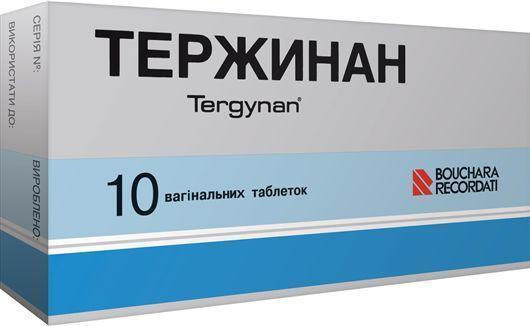
Allergy treatment
The earlier the diagnosis is made, the easier and faster the treatment will be. Therefore, when the first symptoms of an allergy to pads appear, you should stop using them, if the situation allows. Otherwise, they can be replaced with similar products, but from a different manufacturer.
Strengthening the immune system will help avoid relapse of the disease. Therefore, doctors recommend pregnant women and nursing mothers to take vitamin complexes and immunomodulatory drugs. They will increase immunity and protect against the development of infectious diseases of the genital organs.
Following a diet and eliminating stress and overwork in everyday life will help increase the effectiveness of drug therapy.
Elimination
Eliminating the allergen from the environment. Even in the event of a single case of an allergy to pads, you should forever abandon a specific brand. A wide range of these products in stores allows you to do this.
Then they begin the next stage of treatment - removing any remaining allergen from the surface of the skin. To do this, just wash the intimate area well and pat dry with a towel. To eliminate irritation, wash with cool water or a decoction of medicinal herbs. This will allow you to get rid of unpleasant sensations.
Medications
Itching and burning are common accompaniments of skin allergies. To eliminate them, topical antihistamines are used.
The following medications are usually prescribed for this:
- Fenistil gel (price from 271 rub.);
- Psilo-balm with chamomile (price from 269 rub.);
- Gistan (price from 105 rubles);
- Skin-Cap (price from 825 rub.).
Fenistil Psilo-balm Gistan Skin-cap
In the presence of a severe allergic reaction, the use of corticosteroid drugs is recommended.
They contain hormones, so such treatment is carried out in exceptional cases:
- Advantan (price from 397 rub.);
- Elokom ointment (price from 74 rubles);
- Hydrocortisone ointment (price from 32 rubles).
Advantan Elokom Hydrocortisone
To speed up healing, anti-inflammatory and antiseptic creams and ointments are used.
ethnoscience
Washing the genitals with a decoction of medicinal plants will help relieve inflammation due to allergies.
These properties have:
- pharmaceutical camomile;
- knotweed;
- nettle;
- plantain;
- oak bark
Their infusions can be applied to the skin as lotions.
Folk remedies
Unconventional methods help enhance the effect of medications and speed up the healing process. For such purposes, they resort to douching and the use of tampons soaked in healing agents. When an allergy is established in the intimate area of women, treatment with unconventional methods lasts until the symptoms disappear completely. It is allowed to alternate recipes with each other.
Popular folk methods of therapy.
- Make a medicinal decoction of oak bark and chamomile. Take 2 large spoons of raw material, pour 250 ml of boiling water and simmer over low heat for 3-5 minutes. Leave the broth for 30 minutes, strain. Douche before bed.
- Douching with hydrogen peroxide according to the method of doctor Neumyvakin gives an effective effect. Take a 1% peroxide solution, dilute with warm water in a ratio of 1:3.
- Dilute 10 drops of iodine and 5 g of sodium carbonate in a liter of water. Douche with this solution (warm) for 10 days, 2 times a day, after hygiene procedures.
- For acute symptoms and unbearable scratching, boric acid is used. First, wash the genitals, soak a tampon in boric acid, insert it for 1 minute, remove after this time. Perform this manipulation no more than 2 times during the entire period.
- A calendula bath quickly relieves itching. Boil a mixture of 2 tablespoons of flower and 350 ml of water over low heat. Leave for 15 minutes, add to a bowl of water. Carry out hygiene measures first, get into the bath for 20 minutes. Calendula effectively relieves burning and inflammation; the event should be carried out in a course of 10 days, once a day.
Traditional methods of treatment can cause additional allergies. Before using unconventional methods, you should consult your doctor. When an allergy in an intimate place in women has not been eliminated, how to treat it? In such a situation, you need to consult a doctor, he will select a different course of therapy. The previous drug regimen was installed incorrectly or was not carried out properly by the patient.

How to treat allergies in the intimate area
In the initial stages of the disease, when the specific cause is still unknown, symptomatic treatment is often resorted to in cases where the allergy manifests itself too strongly. In the future, treatment is tailored to the specific cause of the allergy and is specific for each individual case.
To treat the main symptoms, antihistamines and steroid-based drugs (creams, ointments) can be used. You can continue treatment with these medications until complete recovery. This is usually enough, but in order to prevent a relapse, you need to consult with your doctor.
Self-treatment
If you are sure that allergies are the only cause of the disease, then the recovery period can be significantly shortened. Some tips will help with this:
- Young women should use toilet paper in the opposite direction from the vagina.
- It is necessary to wash the intimate area at least twice a day , as well as after each sex or masturbation. In order to wash the intimate area, you should try to use clean running water and regular soap without additives.
- Do not over-scrub the allergy-affected area with a sponge . This can only make the situation worse.
- The bath should be replaced with a shower .
- You can put on underwear only after the intimate area is completely dry.
- Avoid getting shampoo on the inflamed area of skin.
- Creams that are needed to soften the skin can relieve discomfort. These creams should be stored in the refrigerator, as cold temperatures can reduce itching more effectively. However, if after using ointments and creams the itching, on the contrary, intensifies and additional rashes appear (hives, blisters, etc.), they should be discarded immediately.
- Wear only cotton underwear .
- Clothes should not fit tightly to the body , especially leggings, leggings, and tight shorts.
- Itching is accompanied by a desire to scratch the affected area of the skin; in order to avoid scratching this area too much, women need to trim their nails and cover them with varnish.
By following these steps, you can not only speed up the recovery process, but also prevent relapses. In addition to these tips, there are several ways to treat itching with improvised remedies at home.

Folk remedies for treating itching
One of the main causes of allergies is neglect of personal hygiene. This problem can be solved in a fairly simple way:
- To boil water.
- Take tar or laundry soap.
- Wash the allergy-affected areas with the resulting solution.
- Dry with a clean towel.
- Replace all synthetic underwear with cotton.
You can also use propolis-based ointment. Propolis is used as a medicine for various ailments. Using it correctly, you can quickly eliminate unpleasant symptoms. You need to prepare it like this:
- Grind approximately 15 grams of propolis.
- Mix crushed propolis with glycerin in an amount of 100 grams.
- Arrange a steam bath for the resulting mixture.
- Once the mixture has cooled, transfer it to the refrigerator.
- Apply or inject the resulting frozen mass into the affected areas.
Herbal infusions are an excellent way to combat itching. Chamomile and nettle infusions, as well as calendula infusions, have the most effective effect. To prepare such a solution you will need two tablespoons of herb per liter of liquid:
- Pour a glass of boiled water over the herb preparation.
- Place on a heat source for five minutes.
- Cool and strain.
- To douche correctly, you need to acquire a special device.
Read more Terrible venereal diseases

You can eliminate itching with baking soda and fir. One procedure is enough for the itching to go away. If the symptoms recur, then after a couple of days the procedure can be repeated. Preparing the solution is simple:
- Melt 50 grams of butter and mix with 5 grams of fir oil.
- Moisten a tampon with the resulting solution and lubricate the itching area.
- Before inserting a tampon, it is necessary to syringe the itching area with a soda solution.
To eliminate itching in the intimate area, taking a bath with a small amount of potassium permanganate may be sufficient. The solution must be prepared in advance. For every five liters of water you need to take one teaspoon of potassium permanganate. Add the resulting solution to the bath. Lie in such a bath for 15 minutes.
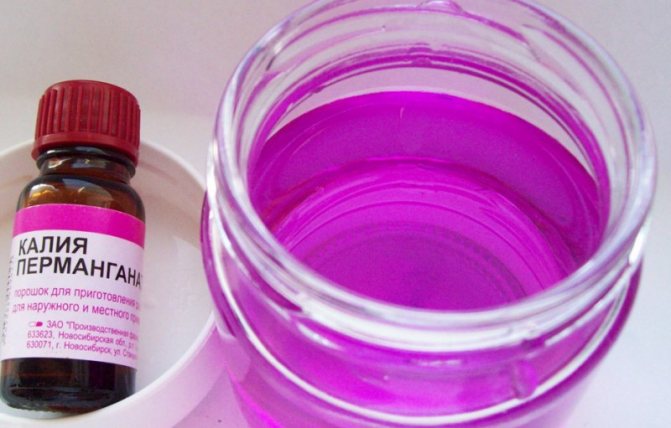
One of the non-standard methods of treating itching is douching with carrot juice. To do this you need freshly squeezed carrot juice and boiled water. Dilute the juice with water and syringe the itchy area with the resulting solution. We repeat the procedure in the morning and evening until the itching completely disappears.
Another remedy is a solution of garlic and milk. For 0.5 liters of water you need to take the juice of one garlic head. The resulting solution is used for douching of the allergic genital organ. After douching, rinse the area where the procedure was performed with a soda solution.
In addition to “folk” remedies, there are also drug methods for treating itching. Only the attending physician can prescribe medications. Self-use of drugs is not recommended, as it may worsen the situation.
The main medications prescribed by doctors can be summarized as:
- Nezulin (the most common antiseptic);
- Gistan (a drug against fungi, prescribed in case of candidiasis);
- Fenistil (relieves allergic itching);
- Beloderm (hormonal drug, prescribed in case of hormonal imbalances).
However, itching can also occur simply due to age-related changes in the body, so as a preventive measure it would not be superfluous to take vitamins E and A and various sedatives.
Itching is not a particularly terrible disease. With the right treatment approach, itching occurs almost unnoticed by the patient. However, it is important to understand what exactly caused it, since incorrect diagnosis can lead to additional difficulties.
In cases where the patient is absolutely sure that it is an allergy, he can independently get rid of the discomfort using “folk” remedies. Drug treatment is possible only under the supervision of the attending physician and will be most effective with strict adherence to the rules of personal hygiene. This will allow you to avoid relapses in the future and live a full life.
Itching in the intimate area in women is one of the most discussed problems in gynecological practice. Such discomfort significantly disrupts overall well-being, causing anxiety and stiffness. Sometimes the reasons for the development of itching sensations are very harmless, but this does not give reason to think that this symptom will go away on its own.

Often, areas with scratches and microtraumas of delicate skin become infected, which provokes swelling of the soft tissues and aggravates the course of the underlying disease. In such cases, you cannot postpone a visit to the gynecologist. A timely examination will allow you to determine the true causes and treatment of the pathology.
What is the danger
Complications appear with regular contact with the irritant and lack of treatment. Most often there is a risk of damage to the urinary system. When severe symptoms appear, it is important not to self-medicate, but to consult a doctor at the first signs of illness.
Typical complications of genital allergic symptoms:
- erosions, ulcers in the area of inflammation;
- cicatricial changes accompanied by the appearance of phimosis and synechiae;
- advanced stages of genital allergies are fraught with the appearance of foul-smelling discharge.
Dealing with the consequences is much more difficult than dealing with the disease itself. Doctors consider the signs of genital allergies to be “masking” dangerous sexually transmitted pathologies.
Prevention
Carrying out preventive measures to prevent allergies in the intimate area includes a number of requirements.
- When wearing underwear made from natural fabrics, it is advisable to give preference to loose styles.
- To maintain intimate hygiene, buy gels with an average Ph level (no more than 3.5). During the menstrual period, wash with herbal decoctions, potassium permanganate, furatsilin.
- You should not change sexual partners frequently.
- Proper nutrition and avoidance of fatty, salty or alcoholic drinks will have a positive effect on the immune system.
- You shouldn't wear panty liners all the time. You need to change them every 2 hours, otherwise the pads create a greenhouse effect and serve as a gateway for infection and intensification of allergic symptoms.
- During sexual intercourse, you should not resort to flavored lubricants.
What to do if there is severe irritation in the intimate area?
Severe irritation in the intimate area can cause serious discomfort for both men and women. In some cases, we can even talk about serious pain while walking, not to mention a cosmetic defect in the form of severe redness, swelling and small pimples on the pubis and genital area. Many people ignore the problem until it begins to affect everyday life - severe itching and the addition of a secondary infection through small wounds formed due to scratching can drive even the most patient people crazy.
Risk factors for a sensitive problem
In order to prevent the regular occurrence of vaginal itching, it is necessary to first establish the causes that provoke it. As experts note, this unpleasant symptom occurs when an inflammatory process begins on the vaginal mucosa, often accompanied by inflammation of the external genitalia.
The symptoms accompanying the pathological phenomenon are that the woman experiences irritation in the intimate area, pronounced redness and burning. Pathologies that accompany the attack often appear, such as dyspareunia - the appearance of unpleasant sensations during sexual intercourse, and dysuria - pain during urination.
The most common cause of this piquant condition is a lack of hygiene measures, which can be caused by camping conditions or a long trip. But in the case when a representative of the fairer sex is completely sure that the pathological phenomenon did not arise due to insufficient care, she should think about the following factors that can provoke itching in intimate places in women:
- Tight underwear that rubs the crotch area.
- Insufficiently properly performed depilation of the intimate area.
- Itching of the genitals can also be caused by an allergy to soap or another allergic agent.
- Frequent hygiene procedures (more than three times a day).
- Constant use of panty liners with fragrance, which disrupts the level of acid-base balance in the vagina.
- Sudden changes in external temperatures (from overheating to hypothermia and vice versa).
All these prerequisites are a direct answer to the question of young patients about why a girl’s intimate part itches. But not only these exogenous factors provoke the appearance of irritation in the intimate area, which accompanies unbearable severe itching and an acute desire to itch. In some, unfortunately, cases that occur quite often, unpleasant symptoms are not an independent pathology. Its occurrence simply indicates that the female body has undergone some kind of malfunction that requires close attention.
Read more Ovarian polyp symptoms and treatment for women
Causes
In children, the most common cause of irritation in the groin area is diaper dermatitis. In most cases, changing diapers and treating the rash with baby cream and powder solves the problem.
It’s just that severe irritation in the intimate area cannot appear. It can be triggered by both mechanical stress and internal disturbances in the body. The most common provoking factors are:
- Shaver. In 80% of cases, irritation in the intimate area appears immediately after shaving. This is a common occurrence, especially for people with sensitive skin.
- Allergic reaction. It can also cause severe irritation in the intimate area in women and men of any age. The allergen can be the same razor or underwear (most often we are talking about synthetic panties). Some girls may be allergic to panty liners. Also, allergens, especially in men, can be an allergy to the lubricant of the condom or to the latex from which it is made.
- Fungal diseases. There are a number of mycoses that affect the inguinal-femoral folds with a small, bright red rash in the form of spots. Most often this is inguinal athlete's foot or rubromycosis, which can be contracted in public showers, baths or swimming pools. At the initial stage, they may disguise themselves as minor irritation in the groin or genital area. But, as the process progresses, the spots can reach the size of a large plate, accompanied by itching of varying intensity and swelling. Even candidiasis can manifest itself as severe irritation in the bikini area. This is explained by the spread of fungi from the genitals to other parts of the body through scratching.
- Venereal diseases. There are a number of diseases that provoke the appearance of small rashes in the groin area. In most cases, we are talking about the initial stages of gonorrhea and chlamydia. Less commonly, syphilis may be the cause. In the presence of the listed diseases, irritation is almost always accompanied by pain during urination, severe itching, swelling and redness in the genital area, discharge and an unpleasant odor.
We must also not forget about observing the rules of personal hygiene, ignoring which can lead not only to severe irritation in the intimate area, but also to the addition of fungal infections. This is especially true for people who are overweight and excessive sweating.
Why women's intimate parts itch: reasons
Doctors know many factors that provoke genital itching. Not only the symptoms of the general clinical picture of the disease, but also the treatment options for the disease depend on their nature.
Allergy
Allergic dermatitis is one of the most common causes of itching of the external genitalia. The body's reaction to a potential allergen can be caused by direct contact with synthetic fabrics (underwear), skin care products or detergent solutions, scented soaps, or laundry detergent. Allergies can also occur after taking medications or eating certain foods. This should be remembered especially for those women who are prone to developing itching in the genitals.
Dry skin
Sometimes itching in the genitals can be associated with genetically determined dry skin in intimate places. The reason for this pathological process is insufficient hydration of the skin and the appearance of discomfort in the form of itching or burning sensations. In such cases, you should pay attention to the woman’s hormonal background and regularly use moisturizing intimate hygiene products that have hypoallergenic properties.
External factors
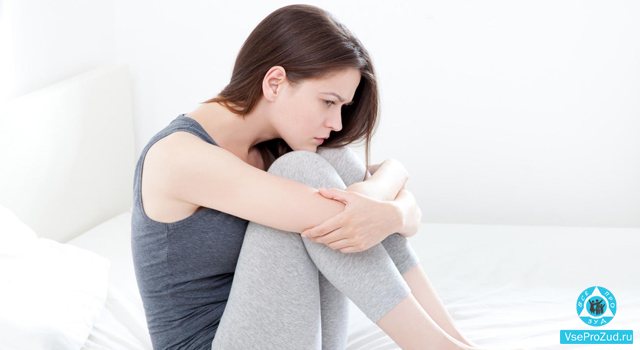
Often itching in intimate places in women is provoked by various exogenous factors, which you can find in the table.
Poor or no hygiene
Uncomfortable underwear
Mechanical damage during shaving
Itching of the genital organs in women with diseases

Often, unpleasant sensations in the genital area can be provoked by factors that are sometimes not related to the reproductive sphere. Common causes of itching in the intimate area in women are diseases of the internal organs.
Diseases of the genitourinary system
Inflammatory processes of the reproductive organs
In case of inflammatory diseases of the reproductive organs (vaginitis, endometritis, etc.), women secrete secretions from the vagina, which has an irritating effect on the skin of the intimate area. This contributes to the appearance of itching and burning in the genital area, causing swelling and redness.
Stress
A state of depression, nervous tension and mental instability often cause itching in an intimate place in women. Patients explain this symptom with anything but their emotional background. In such cases, sedative medications and self-control will help relieve itching.
Read more What causes itchy toes?
